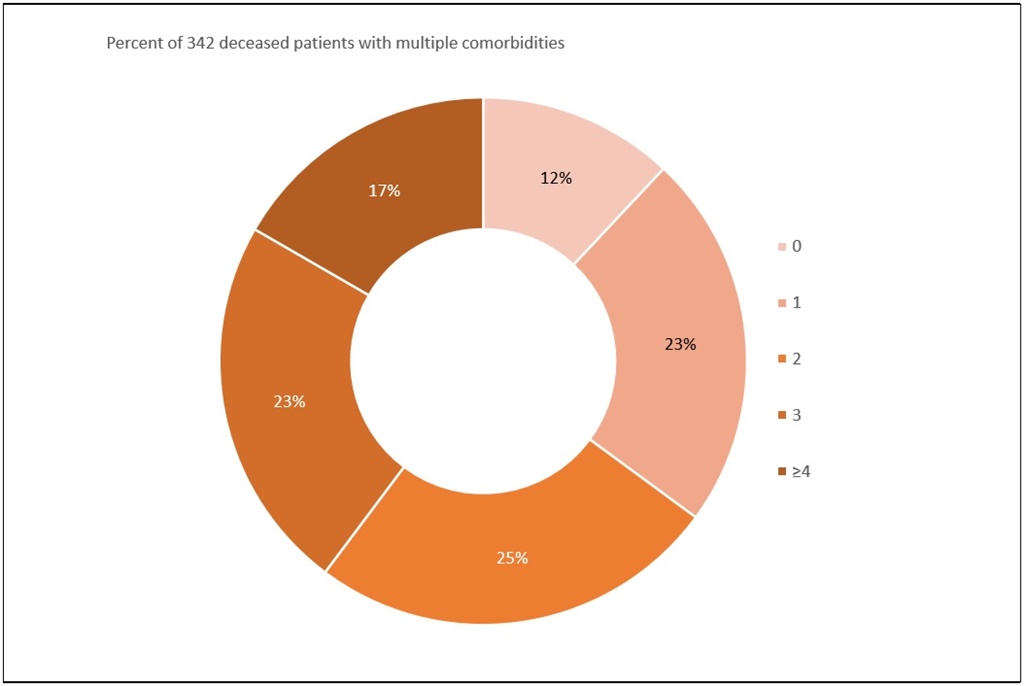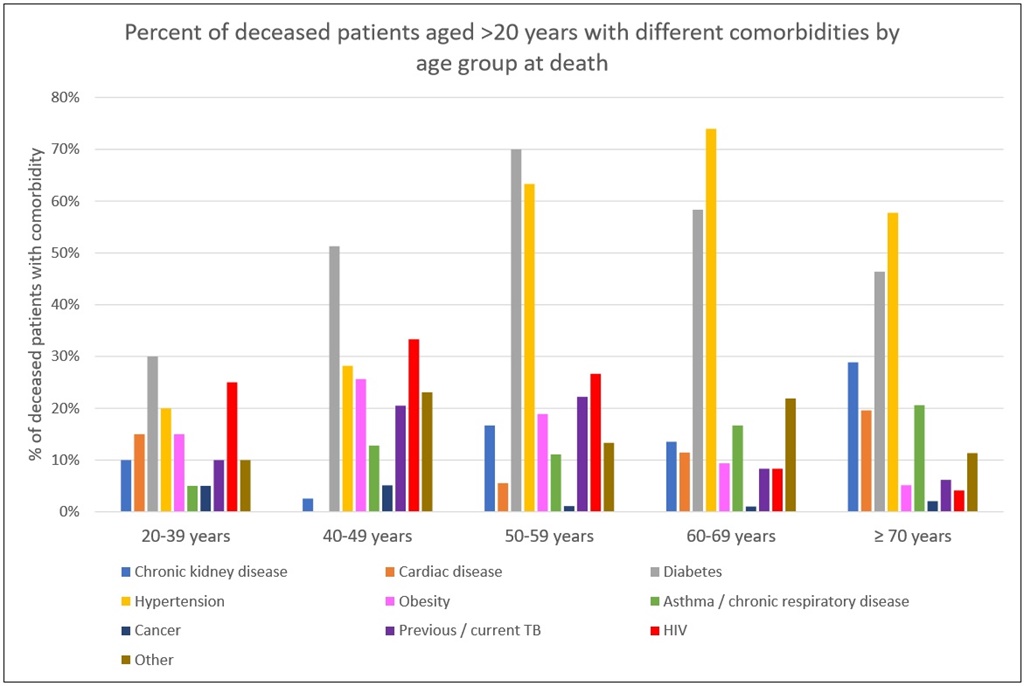- Western Cape data shows that 65% of people who died of Covid-19 had more than one comorbidity.
- Diabetes and hypertension were the most prevalent in cases where patients died.
- Age also plays a significant role in one’s risk if you have a comorbidity.
Here are the most prevalent accomplices which conspire with Covid-19 to kill, according to Western Cape data: diabetes and hypertension.
Since the global pandemic arrived on South African shores, health authorities have warned that certain “comorbidities” are most-often prevalent.
Now, data compiled by the Western Cape government on deaths has broken down which comorbidities were prevalent by age, and has also given more insight into the impact of HIV and TB.
Last week, President Cyril Ramaphosa was briefed on the most life-threatening, as he visited the embattled province which leads the country by cases.
The top five are diabetes, hypertension, HIV, obesity and asthma/chronic respiratory disease. This was part of an exhaustive 68-page presentation to the first citizen by the Western Cape government on Friday.
But it was not just single illnesses to which Covid-19-infected succumbed: A full 65% of the patients cited had more than one comorbidity. And two out of five had three or more.
Below is a pie chart indicating the number of deaths that included a comorbidity at the time of the data collection:



Only 12% – or one in eight people who died – had no apparent comorbidity, with some at risk due to age or other factors.
Despite the high infection rate of the virus, the vast majority of people survive.
The national health department says South Africa’s death rate is still only 2% of all positive cases. The vast majority of people recover.
The Western Cape government says 90% of people who contract the virus will not need any hospitalisation, and will recover from the virus within two weeks.
By age
In the two youngest age groups listed – 20-39 and 40-49 – of those who died, hypertension and HIV topped the danger list as accompanying comorbidities.
Then, from 50 and older, hypertension was joined by diabetes as the top co-killer.
Below is a graph representing the comorbidity breakdown in those who died by age groups older than 20:



Hospitals
When Ramaphosa was presented with these statistics on Friday, there had been a total of 2 226 hospital admissions in the Western Cape. Of these:
– The average stay in general hospital wards had been five days;
– The average stay in critical care units had been 8-10 days;
– 18% in hospital had died;
– 11% had been admitted to intensive care units (ICUs);
– 66% of those in ICUs had died
It’s not only patients taking the toll, but healthcare workers – a total of 6.3% of cases in the Western Cape.
The provincial experts told Ramaphosa that 1 662 healthcare workers had been infected so far. Of all patients hospitalised, 8.3% were healthcare workers. This South African figure was higher than China (3.8%), but lower than the USA (11%), Spain (19%) and British Columbia, Canada (21%).
By Friday, 15 healthcare workers had died.
This represented 0.9% of all healthcare workers infected.
The Western Cape health department presented the president with a complex matrix, which explained “Standard Operating Procedure for Hospital Staff Members with exposure to Covid-19 individuals”.
This calculated their potential exposure, and detailed the steps all staff had to follow, post-exposure. The province had also adopted a “Buddy Screening System”, by which healthcare workers assessed peers.
On Sunday night, the national health minister updated the national death statistics. Of all deaths so far:
– 27.2% were aged 60-69,
– 25% were aged 50-59,
– 18.6% were aged 70-79,
– 11% were aged 40-49,
– 8.2% were aged 80-89,
– 5.3% were aged 30-39,
– 2.2% were aged 90-99,
– 1.1% were aged 20-29,
– and 0.5% were aged 0-19.
Just over 47% were women.
The number of tests conducted so far is edging towards the one million mark, at 920 064 – just under 30 000 in the past 24 hours.
Of all Covid-19 cases so far, a total of 50.5% are no longer active, recorded as “recoveries”.
The Western Cape retains a total of around two-thirds of all cases.

